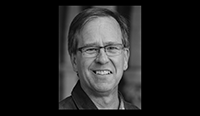
Truth Dialogues 2017-2018
What is the status of evidence and expertise in a “post-truth” culture?
How can truth claims act as a form of political legitimation or resistance?
Why do emotional narratives carry the weight of truth?
The 2017-2018 Humanities Dialogue
TRUTH
Altered. Verified. Challenged.
In partnership with departments and programs across Northwestern, the Alice Kaplan Institute for the Humanities will hold a year-long series of conversations around the theme of TRUTH. Distinguished scholars, journalists and artists will consider knowledge crises and politics from humanistic perspectives and a variety of disciplines: What counts as "truth" versus "knowledge?" What are the questions this raises about certainty or belief?
We will investigate and analyze TRUTH via three large-scale public keynotes and seven more intimate conversations. The full schedule of speakers is below.
- Download the TRUTH Dialogues series poster.
- Watch videos of our three keynotes on Kaplan's YouTube page here.
KEYNOTES
 Oct. 30, 2017
Oct. 30, 2017
Poetry/History/Race/Truth: Natasha Trethewey and Carol Anderson in Conversation with Leslie Harris
5:00 pm – Harris Hall #108
- Poster for Poetry/History/Race/Truth dialogue
- Read a report/reflection of this event by Fiona Maxwell, Franke Undergraduate Fellow
- Watch the video of the event
Natasha Trethewey (English/Northwestern) is a Pulitzer Prize-winning poet and former U.S. Poet Laureate.
Carol Anderson is Professor of African American Studies at Emory University and author of White Rage: The Unspoken Truth of Our Racial Divide. Leslie M. Harris is Professor of History and African American Studies at Northwestern and author of a number of award-winning books on the history of U.S. slavery.
Co-Presenters: Department of African American Studies, Nicholas D. Chabraja Center for Historical Studies, Department of History, Department of English and Creative Writing Program, and Kaplan Humanities Institute
 Jan. 29, 2018
Jan. 29, 2018
Reporting Truth: Jane Mayer and Peter Slevin in Conversation
5:00 pm – McCormick Tribune Center Forum
- Poster for Reporting Truth dialogue
- Read a report/reflection of this event by Fiona Maxwell, Franke Undergraduate Fellow
- Watch the video of the event
What is the role of evidence and truth-telling in the midst of “fake news,” Twitter and “bots?” What are the difficulties of verifying fact and speaking truth in the Trump era? Jane Mayer and Peter Slevin will discuss the challenges of being a journalist when the media is under attack for bias in these tumultuous times.
Jane Mayer is staff writer for The New Yorker. She is author of the book Dark Money about the conservative ascendancy in think tanks, academia, and news media, and the use of money to drown out political adversaries in U.S. politics. Peter Slevin spent a decade on the national staff of The Washington Post before moving to Northwestern, where he is on the faculty at the Medill School of Journalism. He teaches courses on political reporting and foreign policy, and next month will be taking graduate students on a reporting trip to Cuba. He has written extensively about Barack and Michelle Obama, as well as political campaigns and policy debates from one end of the country to the other. His portrait of Michelle Obama was a finalist for the PEN America biography prize in 2016.
Co-Presenters: Medill School of Journalism, Media, Integrated Marketing Communications and Kaplan Humanities Institute
May 7, 2018
Truth Under Siege: Making Climate Knowledge in an Age of Transparency, Skepticism, and Science Denial: Paul N. Edwards
4:30 pm – Harris Hall #108
- Poster for Truth Under Siege dialogue
- Watch the video of the event
New media environments have created a “glass laboratory,” exposing climate data, methods, models, and results to unprecedented public scrutiny and challenge. Meanwhile, the political stakes of climate change rise ever higher. This talk examines the history of environmental data systems in the context of the current US administration’s assault on environmental science. Tracking and understanding environmental change requires scientific memory, aka “long data:” consistent, reliable sampling over long periods. Since 2017, however, science deniers and non-scientist ideologues have been appointed to lead key American knowledge institutions. These developments threaten the continuity of the “long data” vital to tracking climate change and other environmental disruptions, with significant consequences for both domestic and international security. The glass laboratory presents a paradox. It holds the potential to democratize expertise and improve public trust — yet in practice, it has empowered science deniers and sown distrust, with possibly catastrophic consequences for truth.
Paul N. Edwards is William J. Perry Fellow in International Security at Stanford University and Professor of Information and History at the University of Michigan. His research focuses on the history, politics, and culture of information technologies and infrastructures. Edwards’s prize-winning book A Vast Machine: Computer Models, Climate Data, and the Politics of Global Warming (MIT Press, 2010), a history of the meteorological information infrastructure, was named a 2010 Book of the Year by The Economist magazine. His book The Closed World: Computers and the Politics of Discourse in Cold War America (MIT Press, 1996) won honorable mention for the Rachel Carson Prize of the Society for Social Studies of Science, and has been translated into French and Japanese.
Co-Presenters: Science in Human Culture Program and Kaplan Humanities Institute
Note: The May 2 event with Naomi Oreskes has been cancelled.
Co-Presented TRUTH Events
Sept. 27, 2017
Democracy in Chains
4:30 pm – Harris Hall #108
- Poster for Democracy in Chains dialogue
- Read a report/reflection of this event by Samantha Schmidt, Franke Undergraduate Fellow
Nancy MacLean will speak about her recent book, Democracy in Chains: The Deep History of the Radical Right’s Stealth Plan for America, which Booklist called “perhaps the best explanation to date of the roots of the political divide that threatens to irrevocably alter American government.” DEMOCRACY IN CHAINS is an exposé of the little-known thinker behind the radical right’s relentless campaign to eliminate unions, suppress voting, privatize public education, stop action on climate change, and alter the Constitution: the Nobel Prize winning political economist James McGill Buchanan. It was Buchanan who taught billionaire Charles Koch that for capitalism to thrive, democracy must be enchained. The Guardian has called the book "the missing chapter: a key to understanding the politics of the past half century.” Come hear MacLean share the story of how she found the trail of this collaboration in the archives as she explains its frightening endgame and import.
Nancy MacLean, William H. Chafe Professor of History and Public Policy at Duke University, is an award-winning scholar of the twentieth-century U.S. She is the award-winning author of Behind the Mask of Chivalry: The Making of the Second Ku Klux Klan (a New York Times “noteworthy” book of the year) and Freedom is Not Enough: The Opening of the American Workplace, which was called by the Chicago Tribune “contemporary history at its best.” Professor MacLean’s scholarship has received more than a dozen prizes and awards and been supported by fellowships from the American Council of Learned Societies, the National Endowment for the Humanities, the National Humanities Center, the Russell Sage Foundation, and the Woodrow Wilson National Fellowships Foundation.
Co-Presenters: Nicholas D. Chabraja Center for Historical Studies, Department of History, and Kaplan Humanities Institute
Oct. 12, 2017
The Complexities of Bullshit
12:30 pm – Parkes Hall #222
Steven Lukes is Professor of Sociology at New York University. His writing and teaching range over political science, political and moral philosophy, sociology, anthropology, and the philosophy of the social sciences. His publications include Emile Durkheim: His Life and Work (1973); Individualism (1973); Power: A Radical View (1974, second edition 2005); Essays in Social Theory (1977); Marxism and Morality (1985); Moral Conflict and Politics (1991); Liberals and Cannibals: The Implications of Diversity (2003); The Curious Enlightenment of Professor Caritat: A Comedy of Ideas (1995) and Moral Relativism (2005). With Martin Hollis he co-edited Rationality and Relativism (1982) and with Michael Carrithers and Steven Collins, The Category of the Person: Anthropology, Philosophy, History (1986). He is currently working on a new edition of Power: A Radical View and on a book about the sociology of morals.
Co-Presenters: Department of Sociology and Kaplan Humanities Institute
Oct. 12, 2017
Fake News on Abortion: How the Antichoice Movement Makes Stuff Up and Gets You To Believe It
5:00 pm – Kresge Hall #1515 (Trienens Forum Room)
- Poster for Fake News on Abortion dialogue
- Read a report/reflection of this event by Samantha Schmidt, Franke Undergraduate Fellow
Abortion will kill you, drive you insane, make you infertile, and haunt you forever. These and many other falsehoods are influencing public opinion and helping to change laws all over the country. Whatever happened to science?
Katha Pollitt is a polemicist, poet, and feminist; she writes the award-winning column “Subject to Debate” for The Nation magazine. Her latest book is Pro: Reclaiming Abortion Rights; she is also the author of two books of poetry and several collections of essays.
Co-Presenters: Department of African American Studies, American Studies Program, Gender and Sexuality Studies Program, Edith Kreeger Wolf Endowment in Weinberg College of Arts and Sciences, and Kaplan Humanities Institute
Oct. 23, 2017
Democratic Judgment in an Age of "Alternative Facts"
12:00 pm – Scott Hall #212
- Poster for Democratic Judgment in an Age of 'Alternative Facts' dialogue
- Read a report/reflection of this event by Adina Goldman, Franke Undergraduate Fellow
Linda Zerilli in conversation with Robert Hariman.
Linda Zerilli is author of A Democratic Theory of Judgment (UChicago Press, 2016). She is the Charles E. Merriam Distinguished Service Professor of Political Science at the University of Chicago. Robert Hariman is a Professor of Rhetoric and Public Culture in the Department of Communication Studies. His most recent book is The Public Image: Photography and Civic Spectatorship (Chicago, 2016), coauthored with John Louis Lucaites. This year he is serving as president of Northwestern's Faculty Senate.
Co-Presenters: Political Theory Colloquium of the Department of Political Science and Kaplan Humanities Institute
November 15, 2017
An American Genocide: The United States and the California Indian Catastrophe
5:30 pm – Harris Hall #108
Between 1846 and 1873, California's Indian population plunged from perhaps 150,000 to 30,000. Benjamin Madley uncovers the full extent of the slaughter. His deeply researched book, which won the Los Angeles Times Book Prize for History and other awards, narrates the chilling history of an American genocide.
Benjamin Madley is Associate Professor of History at UCLA. He is an historian of Native America, the United States, and colonialism in world history. His first book, An American Genocide: The United States and the California Indian Catastrophe, 1846-1873, was named a New York Times Book Review Editor's Choice, a 2016 Indian Country Today Hot List book, and a 2016 Choice magazine Outstanding Academic Title. True West Magazine named Madley the Best New Western Author of 2016. The book also received the Heyday Books History Award and the Commonwealth Club Gold Medal for Californiana.
Co-Presenters: The Center for Native American and Indigenous Research and Kaplan Humanities Institute
April 6, 2018
A National History of Infamy: Tracing the History of Truth in Modern Mexico
12:00 pm – Harris Hall #108
The talk will discuss the ways in which different actors tried to establish the truth about crime in twentieth century Mexico. Detectives, scientists, journalists, fiction writers, newspaper readers and even criminals competed and collaborated to describe and understand crimes in a context where police and judicial institutions did not provide a broadly accepted version of the truth.
Pablo Piccato is Professor of History at Columbia University, specializing in Mexican history. He has worked on the political and cultural history of Mexico, and on the history of crime. His book, A History of Infamy (University of California Press, 2017) explores the broken nexus between crime, justice, and truth in mid-twentieth-century Mexico.
Co-Presenters: Latin American and Caribbean Studies Program, Nicholas D. Chabraja Center for Historical Studies, and Kaplan Humanities Institute
April 19-20, 2018
Sexual Truths and Post-Truths: Knowing and Documenting Sexual Worlds
A workshop organized by the Sexualities Project at Northwestern (SPAN)
April 19: Keynote address by Heather Love, University of Pennsylvania
April 20: Speakers include Roderick Ferguson (UIC), Kristen Schilt (University of Chicago), and Chase Joynt (University of Chicago)
Workshop details here: http://www.sexualities.northwestern.edu/activities/workshop/
What are the genealogies and possible futures of practices of documenting sexual worlds and experiences? This workshop explores the production of sexual truths as they emerge from the intertwining of knowledge and affect, documentation and imagination. While sexuality studies has often cast a critical eye on claims to ground truth in our sexual natures, new approaches in the field have sought to deepen and diversify our understandings of truth-making practices. We take up different conceptions of truth in relation to the sexual—as embodied self-knowledge; as the product of scholarly methods and disciplinary practices; perhaps as a suspect claim in a “post-truth” moment—to consider the origins and legacies of distinctive approaches to perceiving the sexual.
April 23, 2018
Can Non/Humans Tell the Truth?
5:00 pm – Harris Hall #108
The capacity for “truth”—the ability to identify it, to convey it, to cherish it, and even to alter it—is one that we usually associate exclusively with human beings. This talk will explore and challenge the exceptional status given to human beings in the arena of truth by bringing to the fore three interrelated perspectives. First, examples of alternative world perceptions, in which the boundaries between human and non-human entities are permeable, as are notions of who or what is subject to a regime of truth. Second, the precarious position of those considered, in various times and configurations, “not fully human” (racial and ethnic minorities, slaves, women, children, etc.), and the impact of a murky status of humanness on expectations of truth. Finally, contemporary issues of artificial intelligence and the capacity of machines for “true feeling” and “true agency” as well as their increasing capacity to assess (healthcare), entertain (gaming), and deceive (hacking) by presenting as human persons through medical applications, social media, and game play. In so doing, we'll examine possible ways of expanding and modifying our frame of thought regarding Truth and Humanness.
Sylvester Johnson, Professor of Religion and Culture and Founding Director of Virginia Tech's Center for the Humanities, in conversation with Mira Balberg, Northwestern Associate Professor of Religious Studies.
Co-Presenters: Department of Religious Studies and Kaplan Humanities Institute

